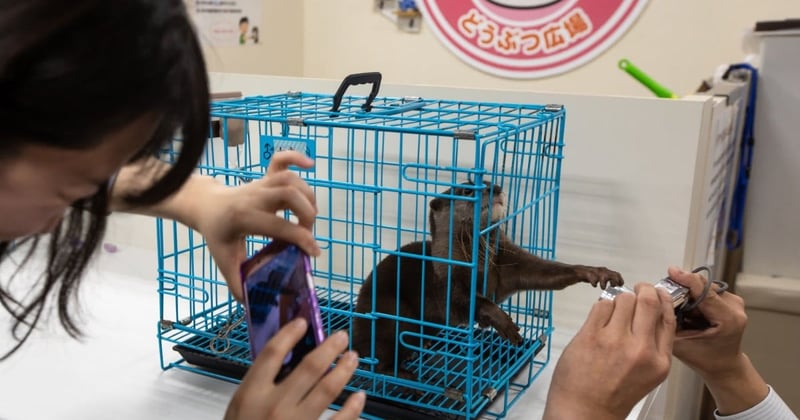
Cruel pet otter craze fuelled by Japanese otter cafes and social media
News
Wild otters are being poached from their natural habitat, confined in terrible conditions and irresponsibly bred to feed international demand
Otter cafes
In Japan, there are more than a dozen animal cafes featuring otters. Each animal at these venues is suffering for the sake of entertainment.
- The otters whimper, shriek and make distress calls while customers are interacting with them.
- Some are kept in solitary conditions with no natural light.
- Others are seen biting their claws and exhibiting traumatized behavior.
- Some of the worst housing conditions include small cages with no access to water.
Poached to the brink of extinction
Because of these cafes and images of pet otters on social media, wild otters are being hunted and trafficked out of existence to satisfy growing international demand.
Our undercover investigation reveals the cruelty behind the illegal hunting, trafficking, and increased attempts to captive breed otters across Japan, Thailand and Indonesia:
- Otter cubs are snatched from their parents in the wild. The fiercely protective parents are shot, electrocuted or their nests are smoked out, so poachers can take their cubs
- Three out of four Southeast Asian otter species are at risk of extinction in the wild
- Suggested involvement of law enforcement and government officials facilitating the cruel trade.
- It is a fairly common practice to cut or even remove the teeth of otters being kept as pets making them safer to handle. At a rescue centre we visited, it was reported that this is seen in the trade a lot. Many otters arrive in sad conditions, tooth decay is common, and some arrive with no teeth, or have had their canines cut.
An otter will never be happy in captivity.
They are born swimmers who will travel long distances in their native waterways. There is no way to replicate this in a home.
World Animal Protection/Aaron Gekoski
Most pet otters are kept in spaces vastly smaller than their natural habitats and aren’t given the correct nutrition, even if owners have the best intentions to feed them properly.
Otters are highly social and live in large family groups of up to 20. This is a far cry from their captive existence as pets.
Be part of the solution
We are urging people to not visit otter cafes, or support social media accounts with pet otters. A life in captivity is a world away from a life in the wild.
Help end the cruel exotic pet trade by signing our wildlife selfie code.
Just because a wild animal is cute, it does not mean you should take it home with you.
